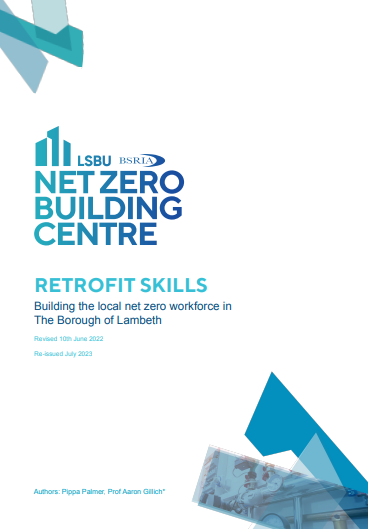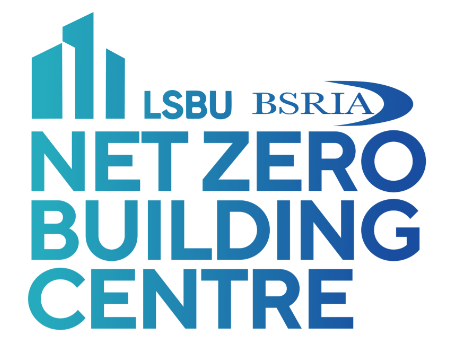Research was conducted by the Net Zero Building Centre in partnership with Lambeth Council to understand the local retrofit supply chain and workforce in the two main retrofit channels: Public-Procured and Private-Purchased.

Research was conducted by the Net Zero Building Centre in partnership with Lambeth Council to understand the local retrofit supply chain and workforce in the two main retrofit channels: Public-Procured and Private-Purchased. This involved a gap analysis and evaluation of the roles and skills needed across both channels. The recommendations and outputs include a list of the roles and skills needed to 2030 and 2050, a stakeholder map of employers and supply chain, and what the Council and other stakeholders should do to address gaps and barriers and optimise local benefits from the delivery of Net Zero retrofits.
A secondary work stream arising from our Lambeth Retrofitting skills research involved convening a sector roundtable to examine barriers to creating retrofit apprenticeships and formalising retrofit skills pathways for the many retrofit trades as well as the more obvious PAS2034 professions. The findings for both work streams are summarised in the reports below.
Lesson 1: The sector responds to signals
Local authorities are positioned to set higher standards for retrofit (than currently exist) and demonstrate longevity and commitment to Borough-wide retrofit ambitions. Yet retrofit doesn’t feature strongly in the Borough's plans, and it does not have the profile of New Build. We believe correcting this imbalance and setting audacious, aspirational goals for large scale retrofitting of homes across the Borough, underpinned with policy standards, could be as powerful as the declaration of a climate emergency.
Lesson 2: Bottlenecks exist at an organisational level
Our research identified that gaps exist not just on the ground at programme delivery level (as it is widely known) but also within the management tiers of the Council and housing associations. We found that housing associations are in a state of organisational transition and need help with goal setting and forward planning. They are eager to ‘do retrofit once – and do it right!’ and avoid a large leap to reach Net Zero post-2030, but they are firefighting against competing demands – a post COVID-19 environment, new fire and safety regulations, fuel poverty and rent pressures affecting fragile lives, plus their ‘business as usual’ maintenance and stock management. They are aware that when it comes to retrofit they are only in pilot phase – there are bigger challenges to come – but are already struggling with retrofit planning and management resource shortfalls.
Lesson 3: The housing association sector is keen to collaborate
We found housing associations really eager to share knowledge and collaborate with each other to capacity build and accelerate innovation. They expressed a strong desire for the Council to facilitate this, creating a forum where they can get assistance with forward planning, project prioritisation and creating their roadmaps to reach Net Zero. They want help with procurement and project delivery, and also with their own internal organisation, for example capacity building and upskilling (CPD) at both management / strategic level and at ground/delivery level. These problems are unique to our times and the challenges we face, but universal among housing associations. Collaboration is key. In the race to Net Zero, the over-arching sentiment from HAs was ‘when it comes to retrofit, we can’t be in competition’.
End of Preview

